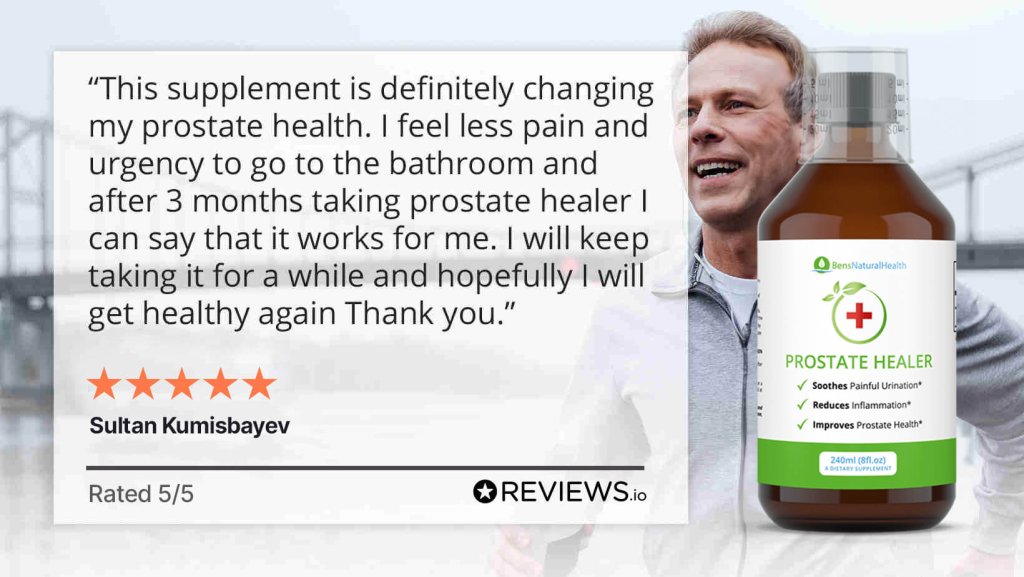Do you feel the urge to pee, but only a little comes out?
If you are busy doing something and don’t pay attention to the urge to pee, do you leak a bit?
No matter how hard you’ve been trying not to pee, it never works.
Having a constant urge to pee but little comes out is a more prevalent problem than you think.
If you experience a persistent need to urinate, yet experience difficulty expelling urine, it may be indicative of an infection or another underlying health issue.
Potential causes include a urinary tract infection (UTI), pregnancy, an overactive bladder, or an enlarged prostate.
Here, you can figure out the different causes and practical ways to treat and prevent the problem.

Reasons why you feel a constant urge to pee but little comes out
Peeing every 5 minutes, with little to no pee coming out, can result from frequent urination. And many causes can affect urine volume.
1) UTI (Urinary tract infection)
Even a simple urinary tract infection can prompt a powerful and persistent urge to urinate, only for the patient to pass small amounts of urine. So, it’s important to clear up any urine infections that may lead to pain or urgency.
A UTI is an infection affecting any component of your urinary system, encompassing your kidneys, ureters, bladder, and urethra.
These infections are frequently caused by bacteria, primarily Escherichia coli, which can infiltrate the urinary system either through the urethra or via the bloodstream.
Although UTIs are more prevalent in women, men can also be susceptible to their development.
- Frequent urge to urinate
- Burning sensation during urination
- Low-grade fever
- Cloudy or bloody urine
- Cramping or discomfort in the lower abdomen or groin
2) Overhydration
Some patients experience this problem due to excessive water intake (overhydration). Like when you drink fluids well over 3 liters (100 ounces) a day.
3) Pregnancy
Frequent urination during pregnancy is a common and expected phenomenon. Women often find themselves needing to urinate more frequently due to the unique changes that occur in their bodies during this time.
When discussing urinary frequency in women, it’s important to point out that peeing often during pregnancy is entirely normal. Women need to go more often because of the physical and hormonal changes that happen in their bodies. Hormones, such as human chorionic gonadotropin (hCG) and progesterone, rise during pregnancy. These hormonal shifts can result in increased blood flow to the pelvic area and an enhanced sensitivity of the bladder, making it fill up more quickly.
Furthermore, as the baby develops in the uterus, it expands and places pressure on the bladder. This added pressure can lead to the feeling of needing to urinate more often.
4) Bladder irritants
When struggling with bladder conditions, like hypersensitive bladder syndrome, the bladder irritants you drink can make you pee a lot. The caffeine in tea and coffee can make the bladder more active and exacerbate the urgency. Some irritants to your bladder include:
- Caffeine from coffee, tea, and certain soft drinks
- Alcohol
- Carbonated beverages
- Artificial sweeteners
- Spicy foods
- Citrus fruits and their juices (e.g., oranges, lemons)
- Tomato-based products
5) Enlarged prostate (BPH)
An enlarged prostate, a condition known as benign prostatic hyperplasia (BPH), is commonly associated with an increased urge to urinate. This condition primarily affects older men and can lead to several urinary symptoms, with the most prevalent one being a heightened urgency to pee.
As the prostate gland enlarges, it can put pressure on the urethra, the tube that carries urine from the bladder. This pressure can obstruct the normal flow of urine and irritate the bladder, causing it to become more sensitive.
Get 10% Off Our Products!
- Sign up to our newsletter
- Get Your FREE PSA Lowering Diet Plan
- Be the first to hear about sales and promotions
- Stay up to date on our latest health news
6) Overactive bladder
Overactive bladder (OAB) characterizes a condition in which individuals experience an intense and abrupt urge to urinate. It’s important to understand that this urge is often not directly related to the volume of urine in the bladder. Instead, it’s driven by an overactivity of the bladder muscles. This overactivity can create a compelling need to urinate, even when the bladder isn’t significantly filled.
One of the distressing consequences of OAB is urinary incontinence, which means that individuals with this condition may experience involuntary leakage of urine. This can occur when the urge to urinate becomes so intense that the individual cannot reach the restroom in time to void the bladder voluntarily.
This condition can significantly disrupt daily life, as individuals may find themselves constantly preoccupied with the frequent need to visit the restroom and the fear of potential leakage.
7) Cancer
Cancer, particularly bladder, prostate, and ovarian cancer, can manifest as a heightened urge to urinate. This symptom should not be ignored, as it may serve as an early warning sign of these potentially life-threatening conditions. Bladder cancer can irritate the bladder and result in frequent urination, while prostate cancer can obstruct the urinary flow, causing a similar sensation.
8) STDs
Inflammatory stimulation can cause problems with peeing. Sexually transmitted infections cause a massive inflammatory response that can significantly impact the genital tract. Both gonorrhea and chlamydia trigger frequent urination. (4)
9) Diuretics
Using diuretics can increase urine volume and cause urination problems. Having a decreased bladder capacity can cause similar problems.
Reduced bladder capacity can happen during pregnancy, from large bladder stones, or any uterine compression.
10) Urinary incontinence
If you are leaking urine and you feel you have little control over the bladder, then you might have urinary incontinence. There are different types of this problem, such as stress incontinence, which occurs when the muscles that keep the urine inside become weak.
Another type is overflow incontinence. This means the body is creating more urine than the bladder can handle.
Lastly is an overactive bladder, when the brain is telling the bladder to pee, but there is no need to. Bladder incontinence happens in both female and male patients.
11) Menopause
Research shows that around 35-40% of menopausal women have at least a single UTI episode that needs antibiotic treatment. (3)
Menopause can make you feel like you can’t stop peeing, mainly because you can have trouble controlling urination. It also increases the odds of UTIs, dryness, and vaginal itching. Constipation and UTI during menopause can go hand in hand. So, watching your diet and fluid intake is a good idea.
Talk to a doctor if the constant trips to the toilet come with other symptoms, such as increased fatigue, thirst, appetite, vomiting, pain in the side or back, fever, unusual vaginal or penile discharge, cloudy urine, and blood in the urine.
Ben’s Prostate Healer For Bladder & Prostate Health
Prostate Healer is a safe, proprietary, unique blend of the world’s 9 most powerful prostate healing and rejuvenating herbs.
Ben’s Prostate Healer is formulated to fight against prostate diseases like prostatitis and BPH, protect bladder health, provide symptomatic relief from urinary tract infections, and reduce inflammation.
It works on the prostate, kidney, and bladder simultaneously, coaxing cells gently to resume normal function.
If you’re like many men that use the formula, you’ll see a reduction in the number of times you get up to go to the bathroom to urinate, plus see an improvement in the flow of your urine.

Symptoms that accompany a frequent urge to pee
The symptoms of frequent urination in women and men will vary based on what’s causing the problem of urine flow. Some of the classic signs of symptom urgency include:
- Having to pee every 30 minutes.
- Urinating 8 or more times a day. (2)
- Waking up more than 2 times in the middle of the night to pee.
- The urges to pee and bladder pressure are hard to control.
Some of these signs are also typical water infection symptoms. These include urinating more often at night (nocturia), burning sensations when weeing (dysuria), or having dark, cloudy, or powerful-smelling urine.
Diagnosing a frequent urge to urinate
As discussed above, many health conditions can cause the frequent urge to urinate. But how do you know which issue you are affected by and what is the diagnosis process? We have outlined some of the most common diagnosis methods below:
- Medical History: Your healthcare provider will begin by taking a detailed medical history. They will ask about the duration and frequency of urination, any associated symptoms, medical conditions, medications, and lifestyle factors that might contribute to the issue.
- Physical Examination: A physical examination may be conducted to assess the patient’s overall health and identify any visible signs of underlying conditions.
- Urinalysis: A urinalysis involves analyzing a urine sample to check for abnormalities in the urine, such as the presence of blood, protein, glucose, or signs of infection. It can provide valuable information about the cause of frequent urination.
- Dipstick test: which looks for substances in a person’s urine that might suggest a UTI.
- Bladder Diary: Keeping a bladder diary involves recording the timing and volume of urination, fluid intake, and any episodes of urinary urgency or incontinence over a specific period. This diary can help the healthcare provider understand patterns and triggers.
- Urodynamic Testing: Urodynamic testing involves a series of tests to evaluate the function of the urinary system, including the bladder and urethra. This can help identify issues related to bladder function and control.
- Blood Tests: Blood tests may be performed to check for conditions such as diabetes or kidney disease, which can contribute to frequent urination.
- Cystoscopy: In certain situations, a cystoscopy may be conducted, which involves using a thin, flexible tube with a camera to examine the inside of the bladder and urethra. This is typically done when there is suspicion of structural or anatomical issues.

Treatment to stop peeing constantly
When having a problem urinating, see a urologist or general healthcare practitioner. They can suggest adequate treatment options. Some of them can include:
- Anticholinergic medications, such as Oxybutynin, Darifenacin, or Fesoterodine.
- Water infection treatment antibiotics, for example, Fosfomycin, Cephalexin, or Nitrofurantoin.
- Kegel exercises for pelvic floor conditions.
- Natural home remedies, like pumpkin seeds, Kohki tea, and foods high in fiber.
- To manage difficulty peeing, keep a healthy weight.
- Stop smoking. Cigarettes irritate the bladder muscle and can affect your bathroom schedule.
- Avoid sweet, citrusy, or caffeinated products when peeing every 10 minutes.
Other practical self-help treatment tips when dealing with a frequent urge to pee include avoiding alcohol, spicy foods, too much tea, and artificial sweeteners. If you always have to pee, talk to a specialist to get the right treatment plan for you.
Conclusion
When you have problems with peeing, like discomfort, leaks, going too much or too little – that’s when you start noticing changes in your day-to-day life.
Many causes can lead to a frequent urge to pee. If the bladder emptying is causing you problems, talk to a specialist. They can help you treat the problem and manage the symptoms.
Explore More








